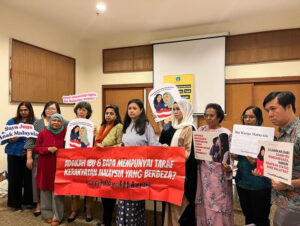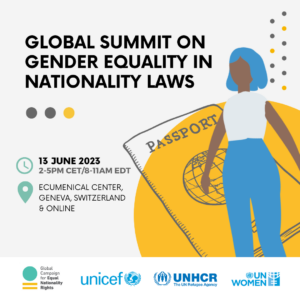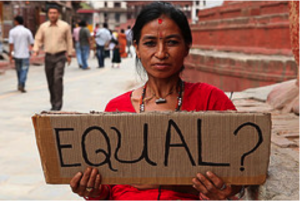Global Overview
Where we work
GLOBAL OVERVIEW
AMERICAS
ASIA PACIFIC
MIDDLE EAST
& NORTH AFRICA
SUB-SAHARAN
AFRICA
Global Overview
Over 50 countries maintain nationality laws that discriminate on the basis of sex. 24 countries have nationality laws that deny women the right to confer their nationality on their children on an equal basis with men.
Read More
Though many countries have reformed their nationality laws to ensure equality between women and men, gender discrimination in nationality laws persists in many regions. The Middle East-North Africa (MENA) and Sub-Saharan Africa regions have the highest concentration of nationality laws that discriminate on the basis of gender, followed by the Asia Pacific. Roughly half of the countries that deny mothers the equal right to pass citizenship to their children are in the MENA region. Sub-Saharan Africa has the highest number of countries with gender discrimination in nationality laws, with roughly a third of these laws found in the region. While gender discrimination in nationality law has largely been eradicated from the Americas, The Bahamas and Barbados have yet to enact needed reforms.
These discriminatory laws result in serious human rights violations and suffering for individuals and their families, including: statelessness; lack of access to public education, health care and other services; child marriage; increased risk of gender-based violence; unemployment and poverty; and social alienation and psychological damage, and are in violation of international law.
Many of these laws are rooted in colonial legacies, reflecting the discrimination against women embedded in colonial powers’ legal systems, which included other forms of discrimination.
Over the past century, numerous countries have reformed their nationality laws, recognizing both the need to uphold women’s equal human rights and the benefit of gender equal nationality laws to society as a whole. In the past decade alone over a dozen countries have enacted reforms, while a number of others have made commitments to reform their laws.
The global community has recognized that women’s rights are human rights and that gender equality is a requisite for sustainable development, prosperity and peace. It has also recognized nationality as a fundamental human right. The Global Campaign for Equal Nationality Rights works with partners across the globe to realize this vision of equal nationality rights for all.




